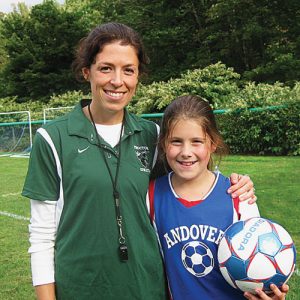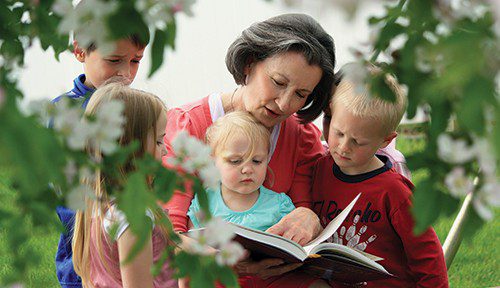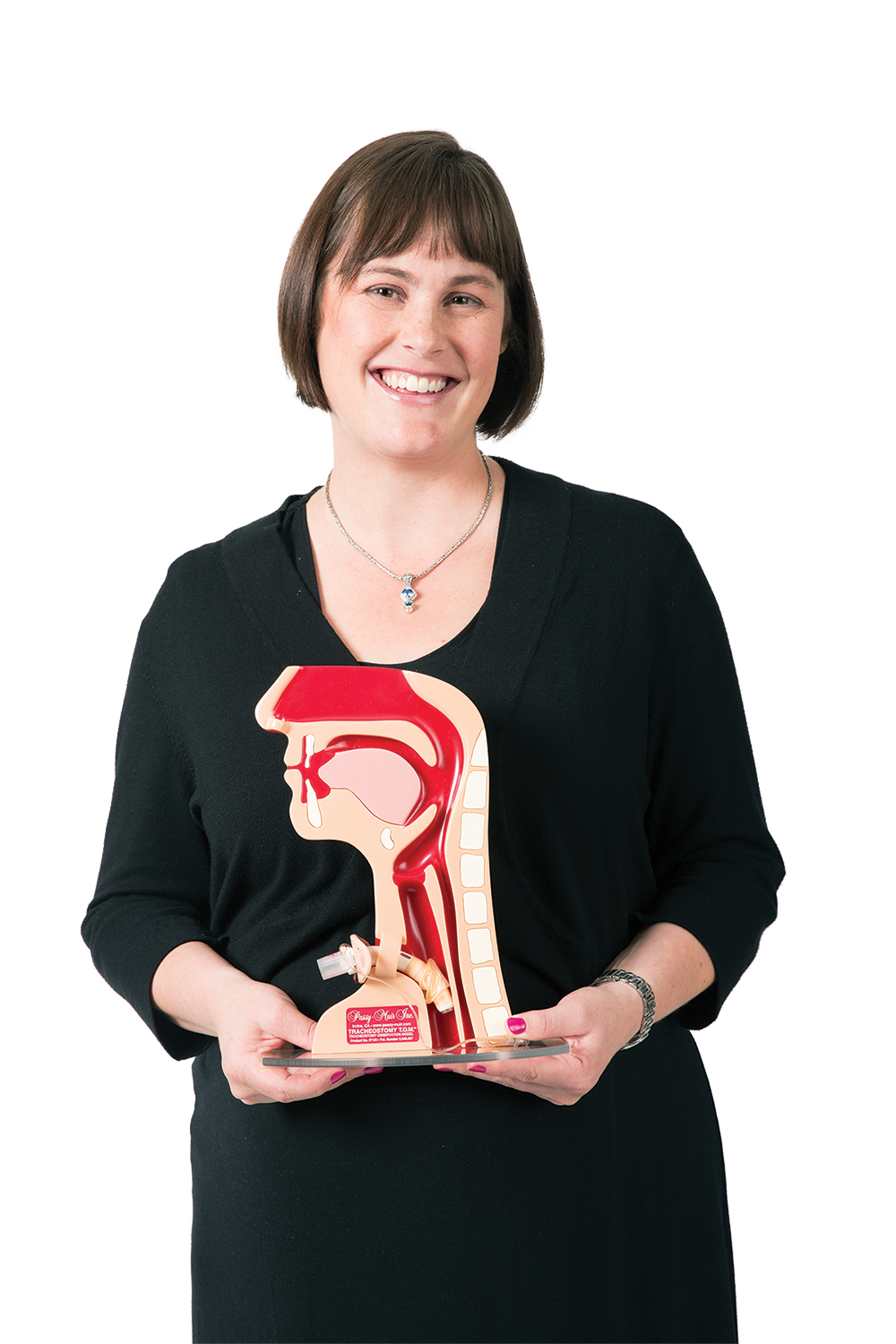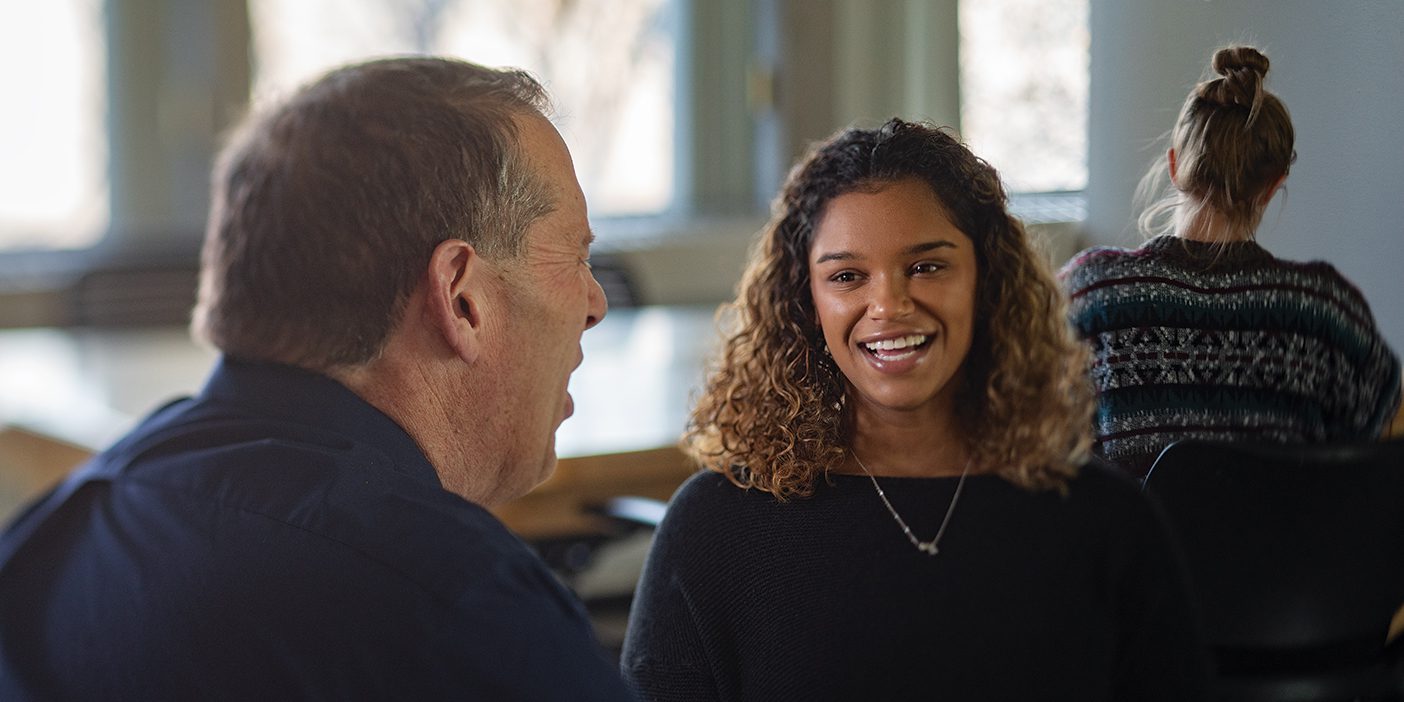How alumni use their BYU educations to serve their communities, neighbors, and families.
Understanding the Why
No lab coat and safety goggles required in this organic chemistry lab, where 5-year-old Daniela explains how water boils in a pot to create steam, then condenses on the lid and returns to a liquid state. In our home, science experiences and discussions are shared regularly.
Expanding marshmallows, blowing bubble cakes to model cell proximity, and building paper-towel-roll tunnels to guide gravity-influenced bouncy balls are all part of the learning fun.
As a molecular biology major and chemistry minor at BYU, I decided that providing science and math experiences for my young children would encourage curiosity and confidence in these “hard” subjects. I now share these simple learning activities with other moms and teachers on my learning-activity blog (smmartideas.blogspot.com).
My hope is that my three girls will feel at home in the science classroom and have a desire to know the “why” behind the amazing world we live in.
—Lisa Keliipaakaua Bergantz (BS ’99), Stansbury Park, Utah
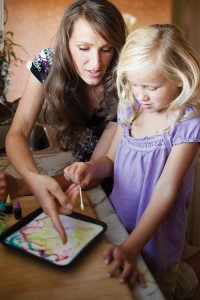
In her home science lab, molecular biology grad Lisa Bergantz seeks to build curiosity and confidence win the sciences.
To Lawrence from Arabia
In 1988 I took one credit of Arabic while studying at the BYU Jerusalem Center. We learned an Arabic song that had a catchy tune, and over the years I’d occasionally sing it to myself.
In 2009, in Lawrence, Kan., I met an engineer who had recently emigrated from the Middle East. He looked downtrodden and told me of his struggle to obtain employment in a foreign land. While chatting, I felt a desire to sing him the song—and find out if years and repetition had rendered it completely unintelligible.
He consented, so I began: “Ah-la u-sa-ha-la u-mar-haba-tain. Shar-af tu ya nur al a-ain.” As he listened, tears welled in his eyes, and when I finished, he said, “That song—it speaks of welcoming, welcoming someone to your city. For me to be in a strange land, using a language not my own, to hear that song, in my language, welcoming me—it is very meaningful.”
I believe that a loving Heavenly Father, aware of a son far from home with burdens hard to bear, orchestrated our meeting in Kansas that day, as well as the curriculum of a one-credit class, 21 years earlier and half a world away.
—Peter M. Steimle (BA ’90), Lawrence, Kan.
Tip: Commanding Attention
After graduating from BYU in physical education, I coached a rowdy group of 7-year-old soccer players at a private boarding school. On the first day, I used a technique I had learned from professors at BYU: “Grab a ball, put it over your head, then tuck it between your feet. Stand up and listen up!” They did it perfectly. The other adults shook their heads in amazement and said, “Did you see that? They’re actually listening.” It was then I realized I had been educated. I had something not everyone had.
Many years and four children later, I am still coaching soccer, now community teams that my children are on. I’m constantly applying class- and athletic-management skills for greater efficiency on the soccer field, during homework time, and while getting chores done around the house. Other techniques I’ve applied directly to my family: speaking softly to get attention, standing still and giving the firm “look” until the children are quiet, and teaching a skill over and over until a child can do it alone. I can teach just about anything using the basic skills I learned at BYU.
—Amy Nelson Makechnie (BS ’98), Andover, N.H.







